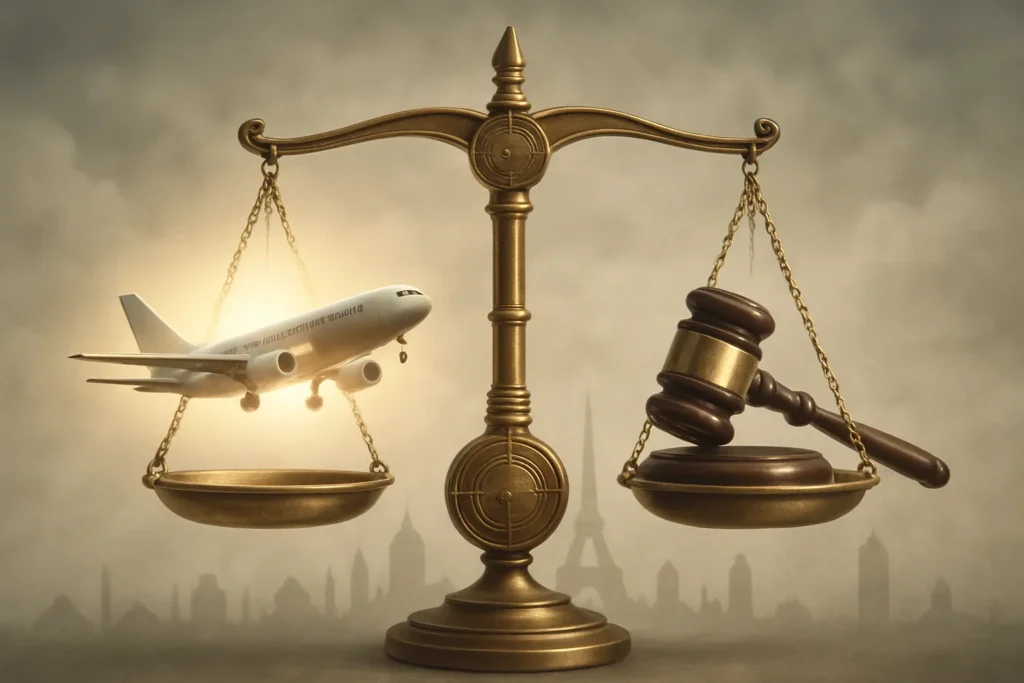International Aviation Body Attributes Responsibility to Russia
In a landmark decision, the International Civil Aviation Organization’s (ICAO) Council found Russia responsible for the downing of Malaysia Airlines Flight MH17 over Ukraine in July 2014. This ruling marks the first occasion in the organization’s history in which it utilized its dispute settlement mechanism to render a merits-based determination between member states. The incident, which took place amidst intense fighting between Ukrainian forces and pro-Russian separatists, resulted in the deaths of 298 individuals, including 38 Australians and 196 Dutch nationals.
Australia and the Netherlands initiated the case against Russia in 2022, accusing Moscow of violating international aviation law, specifically Article 3 bis of the Convention on International Civil Aviation, also known as the Chicago Convention. This article explicitly requires member states to abstain from the use of weapons against civilian aircraft in flight.
According to the ICAO, evidence presented during the inquiry clearly supported claims by the Netherlands and Australia, confirming that Russia substantially breached its obligations under international law.
“The ICAO decision underscores a critical message to all member states that adherence to international law is paramount, and violations cannot be tolerated without repercussions,” stated Dutch Foreign Minister Caspar Veldkamp following the announcement.
With this ruling, the international community now looks towards ICAO’s next steps, which involve addressing reparation measures. The Council indicated that it would soon deliberate on suitable forms of reparation, potentially obliging Russia to negotiate reparations directly with the aggrieved parties.
Chronology and Repercussions of the MH17 Incident
The tragedy of flight MH17 occurred on 17 July 2014, when a Malaysia Airlines Boeing 777 bound for Kuala Lumpur from Amsterdam was struck by a surface-to-air missile near the eastern Ukraine region of Donetsk. The incident quickly drew international attention, leading to a painstaking, multi-year investigation spearheaded by Australia and the Netherlands.
In November 2022, Dutch courts convicted two Russian nationals and a Ukrainian citizen in absentia of murder for their involvement in the missile attack. Russian authorities dismissed this court ruling as “scandalous,” firmly stating that they would refuse to extradite any citizens implicated in the incident—highlighting deep geopolitical tensions surrounding accountability.
The recent ICAO ruling reinforces the findings of Dutch courts and provides additional international validation to claims of Russia’s involvement. Even though ICAO possesses no direct enforcement powers, its moral and diplomatic authority significantly influences international aviation norms and state behaviors.
“While ICAO’s decision cannot be directly enforced, it carries substantial diplomatic weight and further isolates Russia from the international aviation community,” explained aviation law expert Dr. Robert Coleman.
This ruling also raises important questions regarding Russia’s diplomatic relations with other nations and its future participation in international aviation cooperation. The expectation of reparations further complicates diplomatic interactions, especially if Russia chooses resistance rather than negotiations.
Broader Context and Implications for International Aviation Governance
ICAO’s unprecedented use of its dispute resolution mechanism sends a powerful signal regarding the governance of international aviation. Founded in 1944 under the Chicago Convention, ICAO has long set global standards for aviation safety, security, environmental protection, and economic development, currently influencing aviation policies among its 193 member states.
The significance of this ruling lies in its affirmation of international rules governing civilian air traffic, explicitly condemning state actions deemed dangerous or aggressive toward civil aviation. Historically, the protection of civilian aircraft from military hostilities has been central to international aviation law, particularly following incidents such as the tragic 1983 downing of Korean Air Lines Flight 007 by Soviet fighter jets.
Policymakers worldwide closely monitor such rulings; they emphasize the necessity of adherence to international norms. This decision could prompt revisions in national defense protocols to prevent similar catastrophes, potentially prompting reform in aviation safety frameworks globally.
“This decision could lead to significant changes in how nations structure their military and civilian airspace policies, heightening the need for clarity and strict adherence to international aviation rules,” highlighted aviation policy analyst Maria Alvarez.
Furthermore, the findings on MH17 could influence ongoing geopolitical tensions, particularly between Russia and Western nations. Holding states accountable at an international level reinforces the legitimacy of international law and institutions, while simultaneously amplifying calls for justice and reparative processes from victim states.
Thus, beyond immediate diplomatic tensions, this development embodies a broader commitment to uphold international laws protecting air travelers globally, underscoring the critical importance of adhering to established aviation protocols and legal norms.


